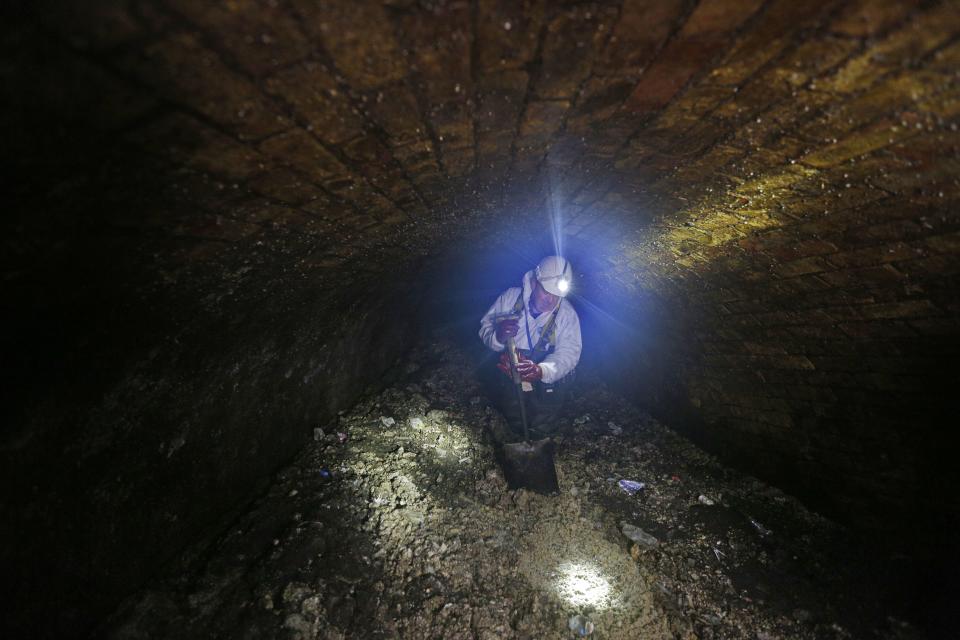'Fatbergs' Are the Scourge of City Sewers

America has a fat problem. No, it's not the obesity epidemic, it's the hundreds of tons of fat and grease clogging our sewers. In recent years, giant 'fatbergs' have been cropping up in sewers and flummoxing the city officials tasked with dealing with them.
The problem originates when people pour hot cooking fat or grease down their drains. When just one person does it it's not a big deal, but when dozens or hundreds of people all unwisely dispose of the grease from their Thanksgiving turkeys it creates a big problem. And when that grease condenses around something like a durable wet wipe it can trigger the formation of a giant fatberg.
These fatbergs can weigh several tons and clog or even break sewer pipes. A 2013 fatberg found in London weighed 15 tons, and one in Northern Ireland weighed at least ten times as much. Years of undetected buildup often leads to gigantic fatbergs that take days or weeks to remove.

Many of the largest fatbergs occur in the U.K., because they have lax regulations on grease traps. Most cities in the U.S. require restaurants to use and maintain their own grease traps, but the rules in the U.K. make implementing similar regulations difficult. Instead, many sewer operators pay people to regularly clean them out.
There's also a structural problem involved. Researchers studying the phenomenon found that fat and grease can react with the calcium in concrete sewer tunnels to form a type of soap-like substance that's much more solid than standard grease. Many sewers in the U.S. and U.K. are centuries old and perfect for developing fatbergs.
So what can we do to fix this problem? We can try adopting the British approach and regularly send workers to clear the growing fatbergs from the sewers before they become a problem, although this is tedious and difficult. There are also plans to harvest the fat and grease and convert them into biofuels.
Or we could just stop pouring grease down our drains. But apparently that might be too much to ask.
Source: National Geographic
You Might Also Like

